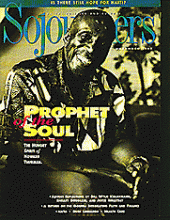I recall how elated I was 10 years ago when Harold Washington won the close 1983 mayoral election in Chicago. I can recall, too, my anger as Mayor Washington struggled to exercise the authority of the position he attained. Then my sadness and rage when he died suddenly while in office. I hesitantly approached Pierre Clavel's and Wim Wiewel's Harold Washington and the Neighborhoods with a mixture of emotions and defenses in place.
What I found was a satisfying array of "insider" recollections that seemed particularly timely given a relatively new presidential administration. No, Bill Clinton is not an outspoken progressive, as was Harold Washington. But their administrations raise the same question: Can an entrenched bureaucratic mode of functioning be recrafted and transformed into a human-centered, participatory mode of government operation valuing concrete achievements? A timely question indeed.
Harold Washington campaigned in the midst of Chicago's socioeconomic decline. Between 1967 and 1982, Chicago lost 45 percent of its manufacturing jobs. At the same time, public dollars earmarked for infrastructure repair were being used for private economic development. Blue-ribbon reports supported targeting greater investment to the "cream of the crop."
Resentment grew. Ordinary people began to realize their common struggle in fending off gentrification attempts. This rising dissatisfaction combined with Washington's commitment to substantive and progressive change to mark an exciting electoral campaign. As one author in this collection writes, Washington as a candidate represented "liberation, strength of convictions, achievement against the odds, and substance. He was seen as a giant intellect who possessed the humility and common sense to stay in close contact with his constituency."
Read the Full Article

